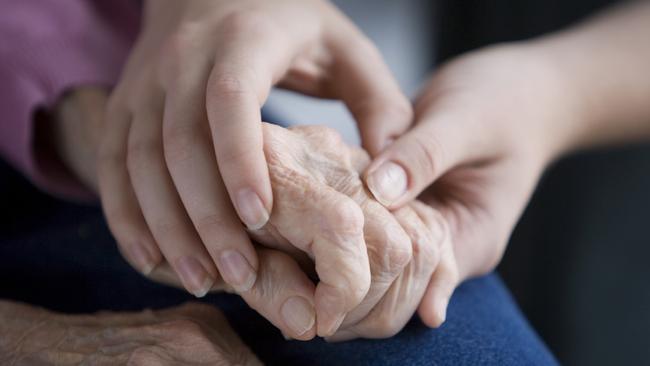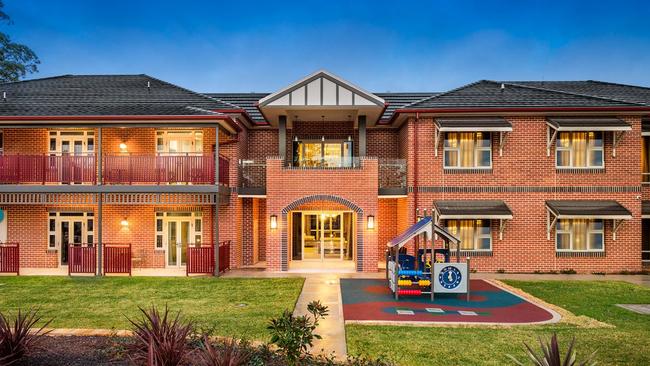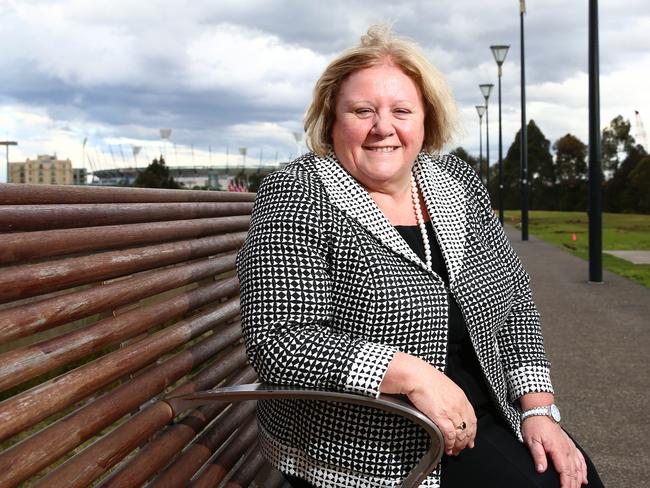Estia Health’s boss keen to stamp out ‘rough handling’ in aged care
AN EPPING aged care worker has pleaded guilty in Burwood Court to assaulting an elderly dementia patient after a colleague hid a camera in the victim’s room but has requested the charge be dismissed on the grounds of mental illness.

Northern District Times
Don't miss out on the headlines from Northern District Times. Followed categories will be added to My News.
AN EPPING aged care worker has pleaded guilty to assaulting an elderly dementia patient after a colleague hid a camera in the victim’s room.
Estia Health owns Poplars Nursing Home and its boss, Norah Barlow, said this mistreatment was one of the motivations for change being needed in the aged care industry.
In the incident, a colleague set up a GoPro camera in August after being concerned about Dana Gray’s behaviour.
In court documents, Gray, 59, an assistant in aged care nursing in the home’s dementia unit, yelled “move” before grabbing an 85-year-old woman’s glasses and throwing them onto the bed in the resident’s room.
The victim screamed and then cries as Gray aggressively strips her cardigan, top and bra, slaps her and pulls her hair as she puts a nightgown on the elderly resident.
When Gray is done, she swings a rubbish bag at the elderly patient’s head and leaves the bed in a high position so she cannot sit or lay down for a number of hours.


The colleague took the footage to police and Gray was charged in October.
In Burwood Court last week Gray pleaded guilty to one count of common assault and requested the charge be dismissed on the grounds of mental illness. The hearing is due to take place in May.
Estia Health chief executive Norah Barlow has been fighting for a long time so the aged care sector is more transparent and she believes the latest incident justifies her push.
She is calling for a national registration system for aged care workers to ensure the history of staff is available. She said the system would be similar to the model used to vet employees who work with children.
“This case is a classic example of why,” she said.
“It was great work by the staff member who saw it and captured it. It was very brave but I’d like to rely on a bit more than that bravery.
“If you need to be registered for working with children why wouldn’t you need to be registered for working with the same vulnerability of people, the same imbalance of power.”
“Carers come into the sector with a nice reference check and their CV. We do a police check but it’s hard to get what we categorise as abuse — it’s not in the street with 20 people watching. It’s what you call ‘rough handling’.”
She said currently, if aged care workers leave an employer due to rough handling, they part ways as ‘friends’ and don’t have to disclose any details about previous employment.
“But they’re not suitable to be working in aged care,” Ms Barlow said.
“They may have left a previous place of employment under a cloud, but there’s no way of knowing. We need to raise the bar.”

She is calling for, at the very least, making aged care workers’ employment history — where they’ve worked and for how long — and any dismissals available on a national database.
Ms Barlow said the register would protect the vast majority of people who are doing the right thing.
“We’re losing people in the sector. They’re getting scared and don’t want to be blamed for something. A vast majority do a great job.
”You’re talking only a handful of people doing the wrong thing. One is too many, no matter how you look at it.”
Ms Barlow said with more people staying at home longer, aged care was for some of society’s neediest.
“These people need significant amounts of care. We have people who are very seriously ill. They are incontinent. They can’t lift their arms to dress themselves or sit straight on the toilet.
“We want to give them the best time they can possibly have.
“When you go around and see the carer gently touching someone to make them feel loved. This is what it’s (aged care) really about and you see that all the time. What would we be without it (aged care). It plays a very big role in society.”
In the Epping nursing home incident, Ms Barlow said it was fully investigated internally, to make sure it was one staff member and not a culture.
“When we found out it was one person we called all the families of that particular area in the home together. It wasn’t pleasant.
“There was a lot of emotion in the room. We can’t change what happened but we can take every action to make sure it doesn’t happen again. If you see something, say something.”
NATIONAL APPROACH
The Federal Government is helping raise benchmarks in the aged care system.
A national independent Aged Care Quality and Safety Commission will be established to prevent failures, highlight substandard care and have them quickly rectified.
It was created as a result of the Federal Government’s aged care workforce strategy. The taskforce’s role is to look at five key areas:
● Why the aged care industry matters;
● Industry leadership, mindset and accountability;
● Industry workforce organisation and education;
● Industry attraction and retention; and
● Translating research and technology into models of care and practice.
Federal aged care minister Ken Wyatt said the government was also looking at introducing unannounced spot-checks at homes.
“The new commission will give senior Australians and their loved ones a single point of contact when they need help in dealing with claims of substandard care,” he said.
The commission will start from January 1, 2019 and bring together the functions of the Australian Aged Care Quality Agency, Aged Care Complaints Commissioner and the aged care regulatory functions of the Department of Health.
“We recognise that the vast majority of providers give consistent, quality care to their residents.
“Our senior Australians have built the nation that we enjoy today. They have rightly earned the respect of the community and must be cared for with the dignity they deserve.”
ESTIA HEALTH
● Has 69 nursing homes in four Australian states.
● They employ 7400 people.
● There are 6000 residents at any one time.
● Aged care staffing needs will grow from 360,000 currently Australia-wide to more than a million by 2050.


